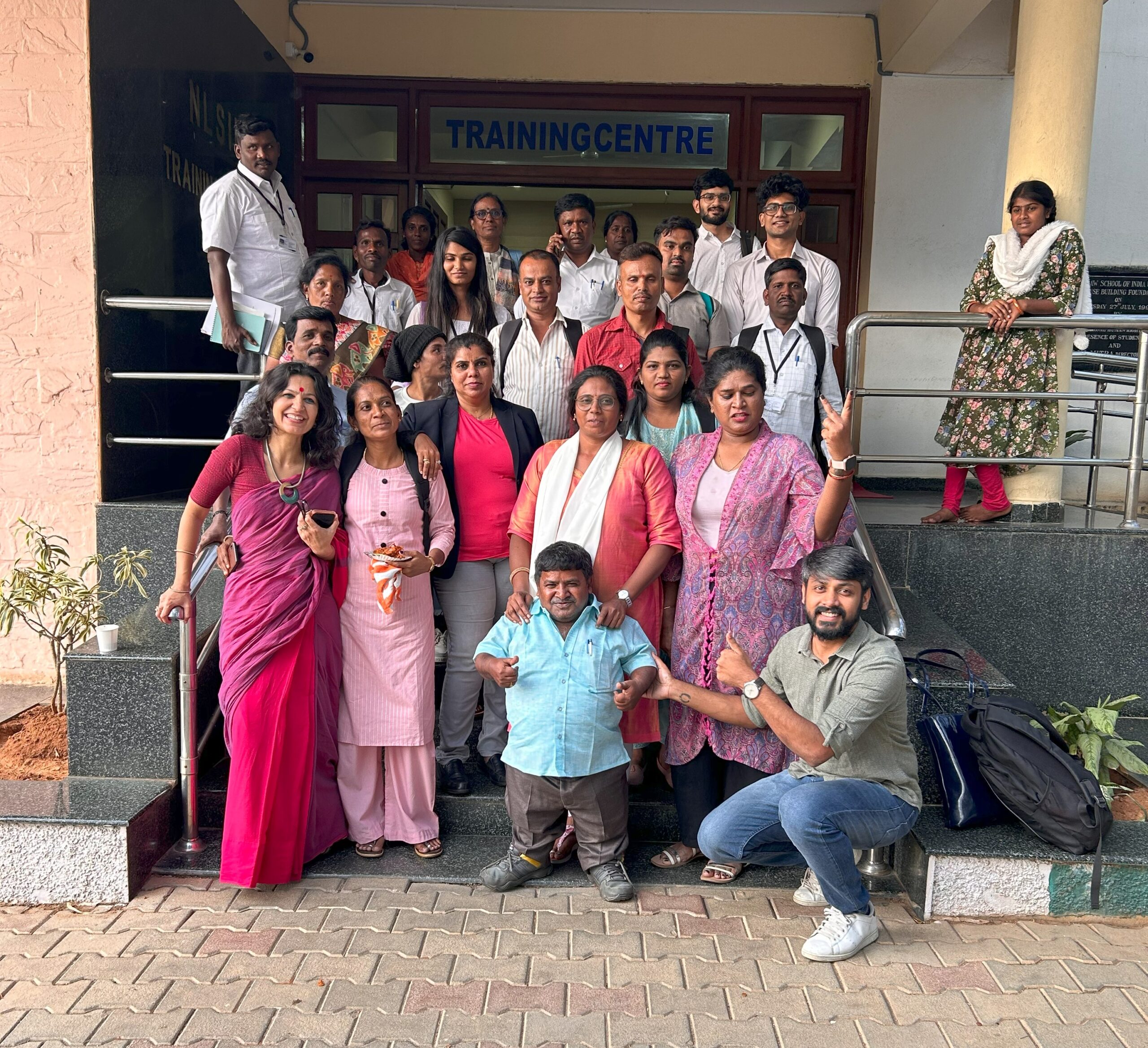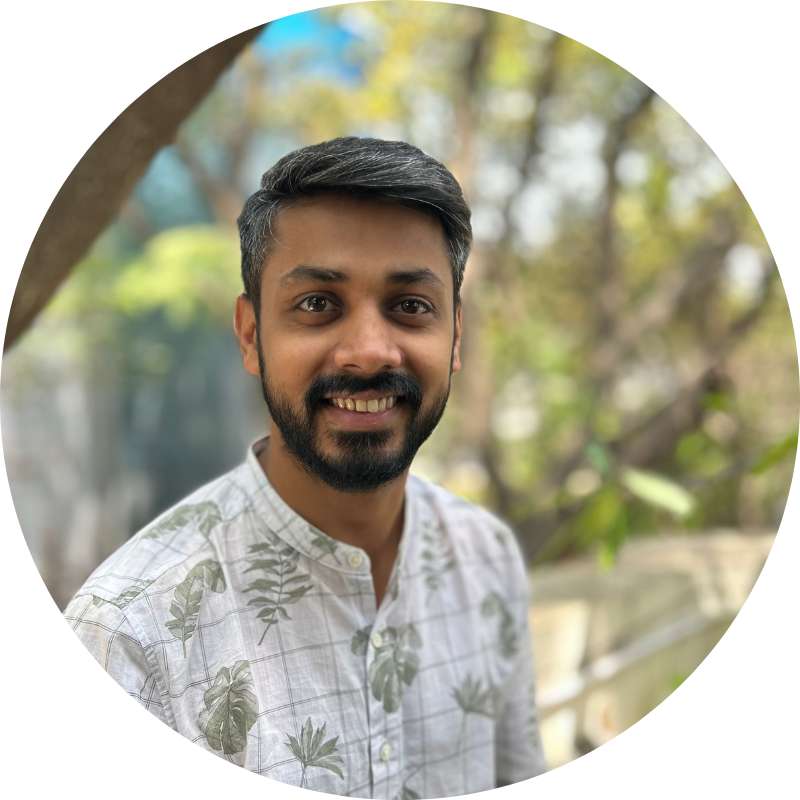On the 3rd of February 2024, CLPR hosted a training program dedicated to furthering the understanding of the Rights of Persons with Disabilities. This initiative is part of our ongoing commitment to making the Constitution work for everyone through law and policy research, social and governance interventions, and strategic impact litigation. The meeting commenced with a discussion on the agenda, highlighting the significant strides made in previous training sessions focused on caste, gender, and disability rights. Attendees were reminded of the importance of these ongoing efforts and how they contribute to fostering an inclusive society. Acknowledging the foundational knowledge gained from past training sessions, the program delved deeper into the pertinent issues faced by minority, disabled, and transgender communities. This served as a foundation for more targeted discussions and interventions to address these groups’ unique challenges.
The session featured an introduction to the resource person, Ms. Rama Krishnamachari, an advocate for disability rights. Rama’s distinguished engagement in advocating for disability rights at national and international levels, particularly under the United Nations Convention on the Rights of Persons with Disabilities (UNCRPD), brought expertise to the training. The training session further unfolded as Ms. Rama engaged participants in a thought-provoking exercise. By illustrating scenarios faced by disabled individuals, Ms. Rama aimed to cultivate empathy and understanding among the attendees. In the subsequent segment of the training, Ms. Rama continued to unravel the in-training segment of everyday life for individuals with disabilities, emphasizing the transformative impact of accessibility measures.
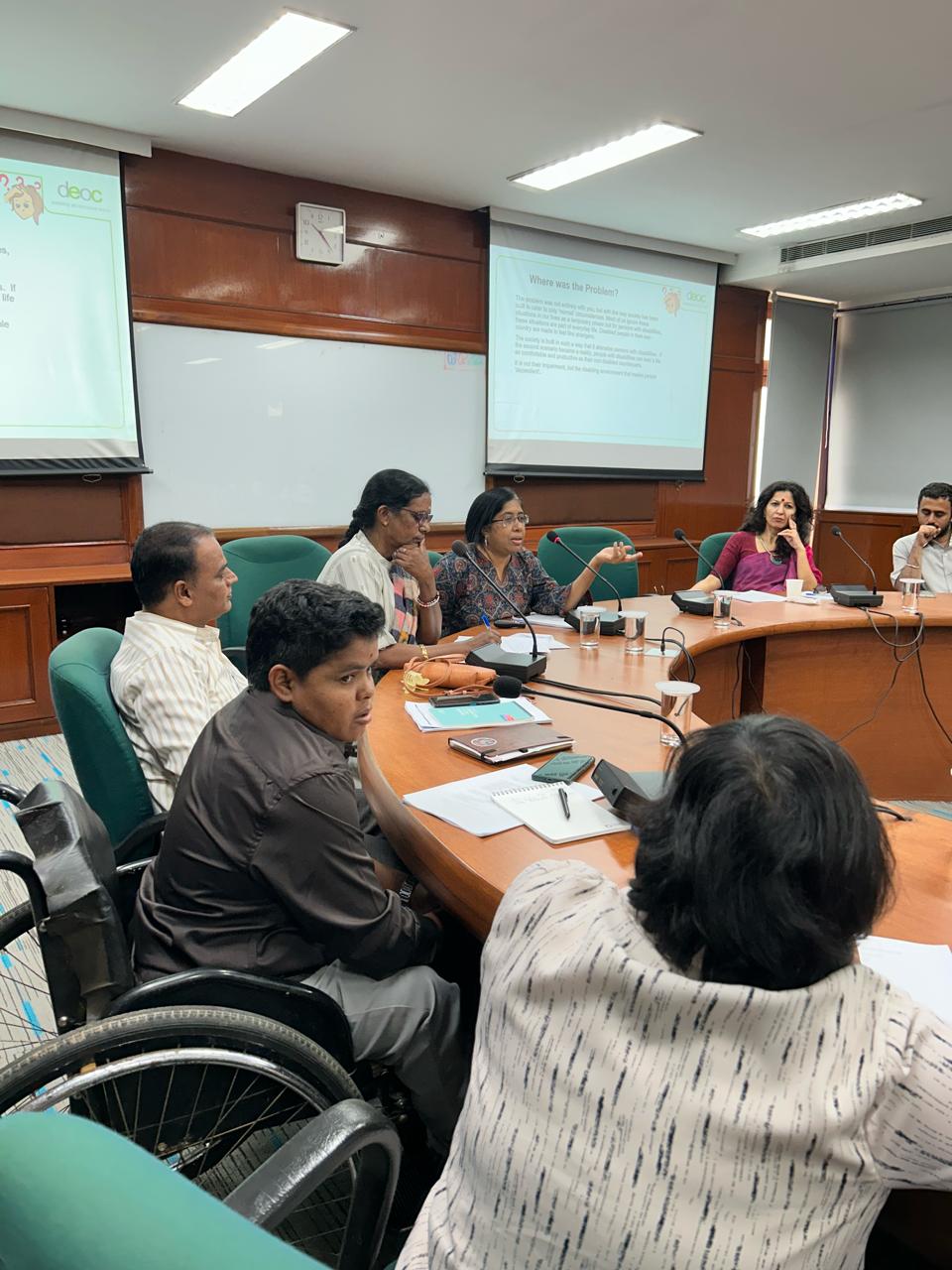
Ms Rama encouraged attendees to challenge earlier thinking, where a standard form of life was assumed to be “normal,” leading to the societal ousting of people with disabilities. The second scenario, she posited, envisions a reality where individuals with disabilities can attain success and enjoy a normal quality of life. This shift in perspective called for a collective commitment to dismantling societal barriers and creating a world where everyone has equal access to opportunities.
Instead of scrutinising the person for their inability to see, the focus shifted to society’s failure to provide access to reasonable accommodations. This shift in perspective aligns with the Social Model of Disability, affirming that individuals with disabilities have equal rights to education, employment, and all other facets of life. It underscores the need for a more inclusive society where everyone can fully participate and thrive regardless of ability.
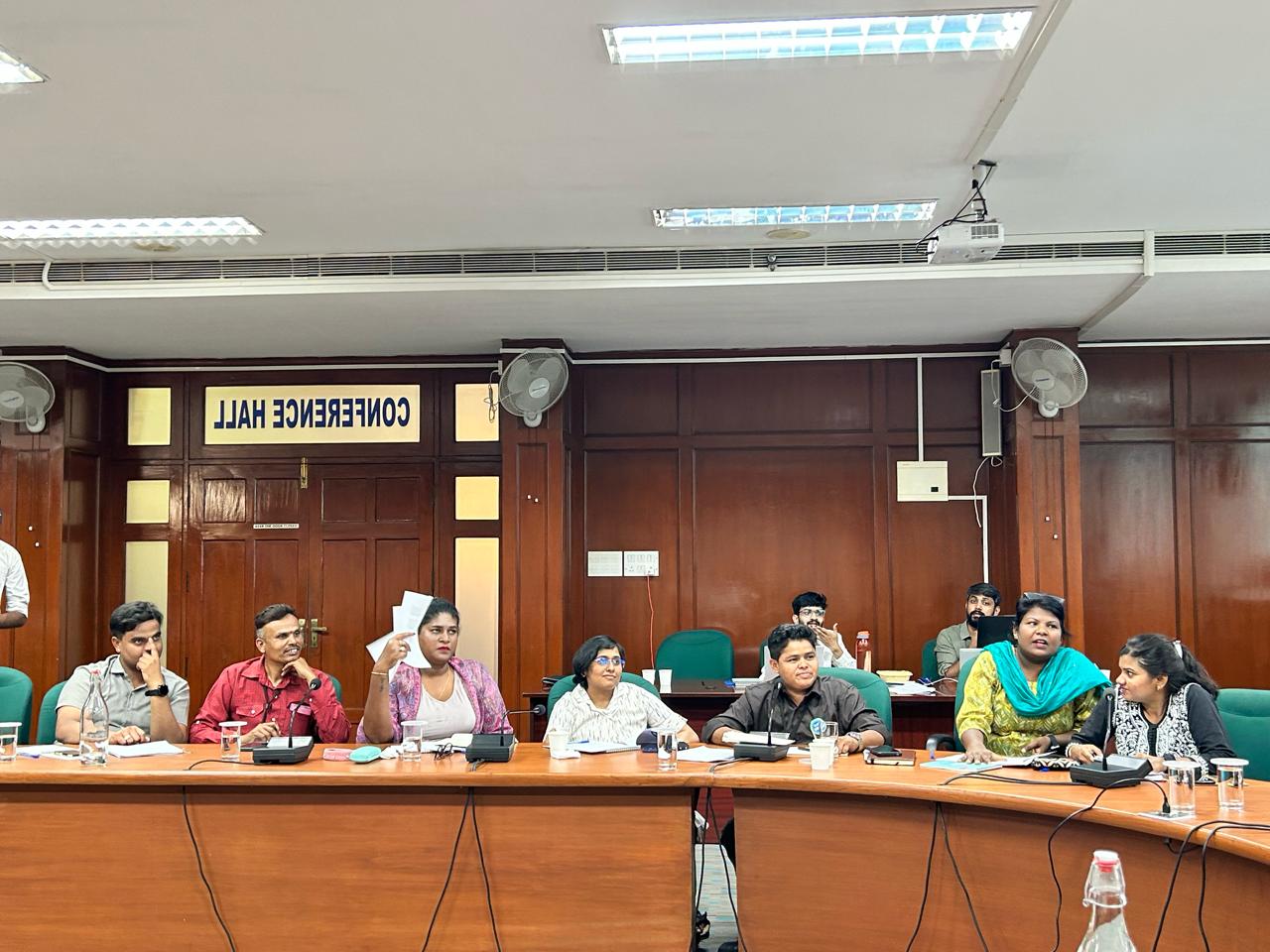
As the session drew to a close, participants were urged to deepen their understanding of disability concepts, mainly when engaged in advocacy efforts. Acknowledging the lack of governmental focus, the importance of grassroots movements in raising awareness and the consciousness about existing social challenges became a focal point. In essence, the training left participants armed not only with a richer understanding of disability rights but also with a renewed commitment to translating this knowledge into meaningful and impactful actions in their respective spheres and their roles as Paralegal Volunteers.
The second session commenced by underscoring the critical importance of terms and concepts for applying and understanding the law. It was highlighted that many legal professionals, including lawyers and judges, are often unaware of fundamental concepts such as reasonable accommodations. Ms. Jayna Kothari, Executive Director of CLPR and Senior Advocate, initiated the session by delving into the historical development of the Disabilities Act. Initially, the discourse surrounding disabilities was confined to academic circles, with social arrangements consistently suppressing the rights and experiences of people with disabilities.
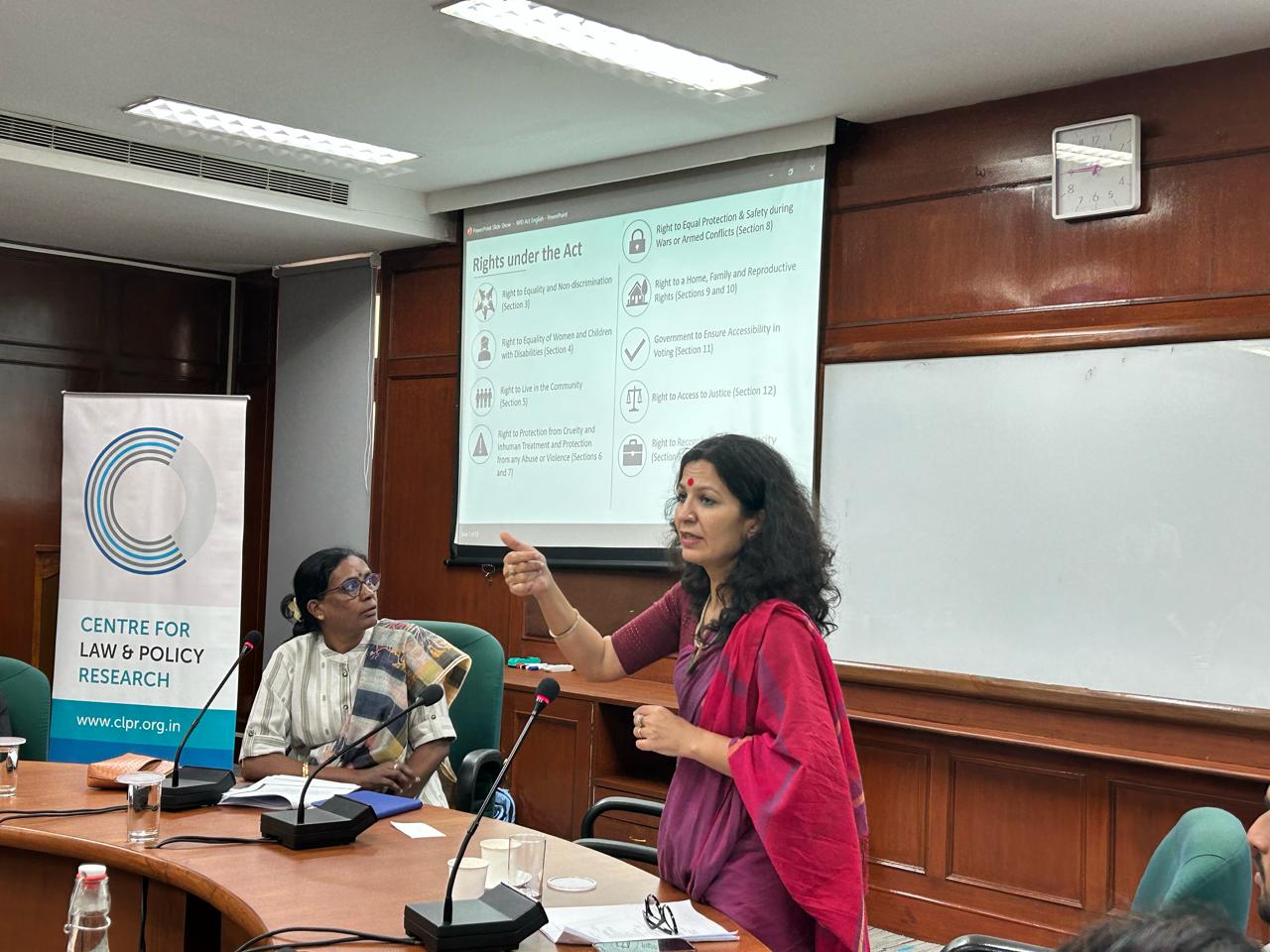
As the session progressed, it became evident that unravelling the historical and legal aspects of disability rights is essential for a comprehensive understanding. The focus on legal definitions and real-world examples served as a bridge, connecting the theoretical foundations with practical challenges faced by individuals with disabilities in everyday life. Ms. Jayna shed light on the definition of reasonable accommodation. She clarified that the relevant question in the analysis is not whether complications arise from granting reasonable accommodation. She challenged the notion of an autonomous human being, emphasizing that every person, due to specific disabilities, may require support, and to avail of support, their disability doesn’t need to be severe. Accordingly, she envisaged the Government of India rolling out a policy for helping scribes by PWDs. Also, she emphasized the importance of the participation of PWDs during the process of formulation of the same.
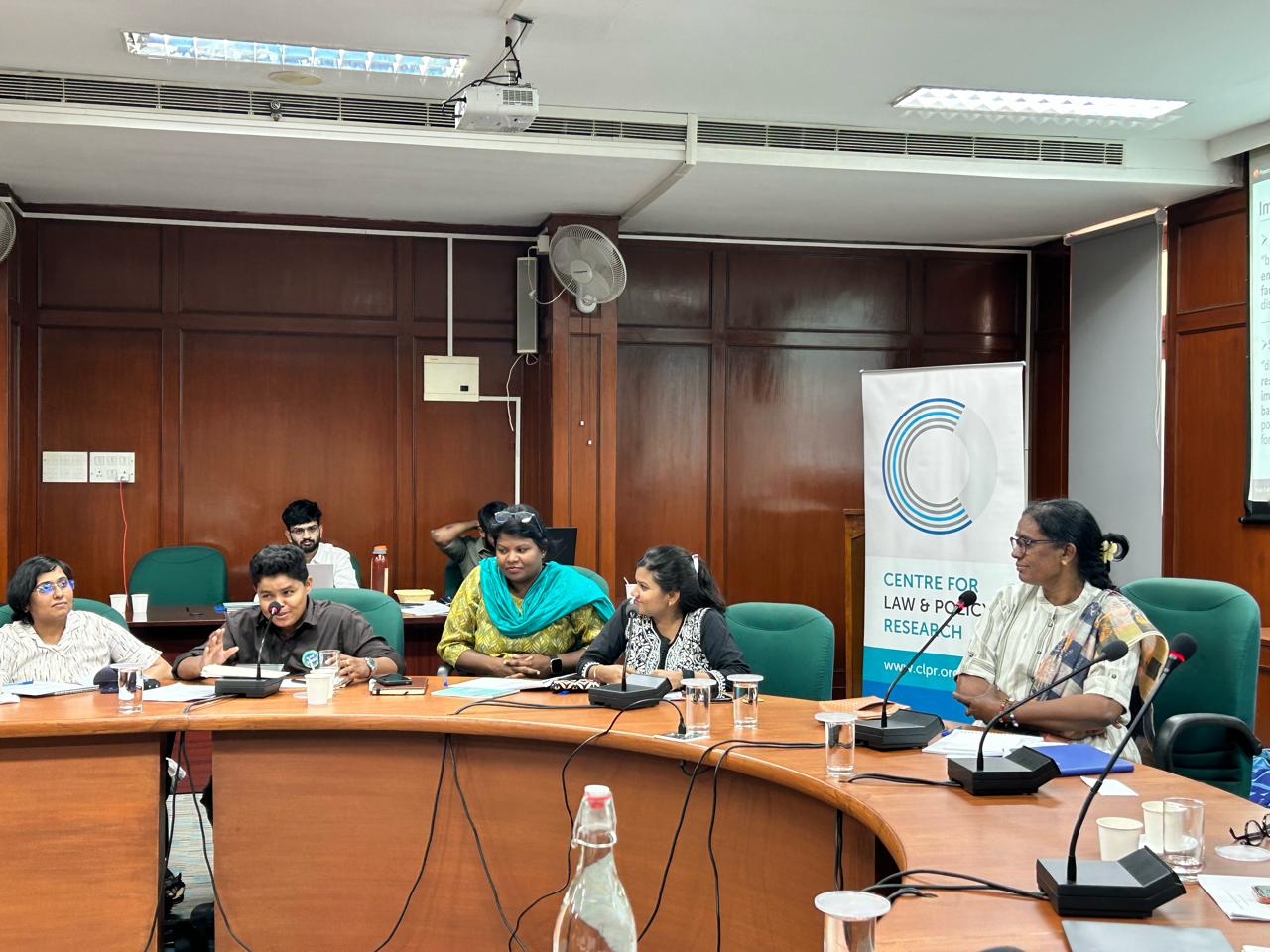
Mr. Kiran Nayak, a PLV with disability, highlighted that the Disability Rights Act hasn’t reached rural areas due to a lack of awareness. PLVs in these regions play a crucial role in facilitating access to wheelchairs and education. Despite challenges in disseminating guidelines, the Act legitimizes addressing disability issues. A dedicated PLV shared her four-year struggle, resorting to the High Court to address challenges in rural areas. NGOs are urged to champion justice for access and pensions. The session revealed diverse challenges faced by individuals with disabilities, calling for proactive advocacy and legal protection.
The discussion session post lunch highlighted various issues, from legal advocacy challenges to systemic discrepancies. It emphasized the ongoing efforts to address these concerns and advocated for the rights and inclusion of persons with disabilities. The diverse cases underscored the need for continuous vigilance and proactive measures to ensure justice and equity for this community. The session ended with all participants having a much-required tea & snacks.
